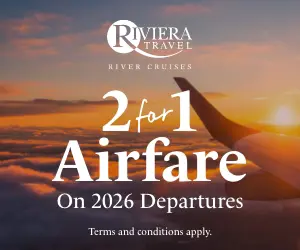Amadeus T&E Study Reports Compliance Challenges and Solutions
by Barbara Peterson
Photo: Shutterstock.com
Corporations that use a TMC or travel agency to handle their travel and entertainment (T&E) expenditures can achieve substantial savings by improving compliance with in-house policies, according to a new study conducted by Amadeus with the London School of Economics. However, only 5% of firms surveyed in the study mandated managed bookings for their employees.
That was among the findings in the report, titled “Managing Every Mile,” based on a series of interviews with 26 senior executives in corporations around the world. The study found that corporate T&E programs are often poorly implemented and frustrating for employees who must travel for their jobs, and in fact, they generate more employee dissatisfaction than virtually any other category of company spending.
Part of the problem is that many companies do not have a way to analyze the benefits of employee travel to the bottom line. “Quantifying the value of business travel remains a key challenge for many organizations,” and as a result, employees may be less motivated to comply with travel policy.
“There is no doubt that we can maximize T&E savings if everybody complied with policy. This is not the reality however,” was a typical quote from an unnamed corporate executive interviewed for the study.
Expense Reporting Process Causes Frustration
One of the most significant findings in the interviews was that companies are relying too much on the expense stage as a way to manage their entire travel program. Two-thirds of the executives surveyed said the travel expense process “was a cause of both user frustration and clerical and managerial annoyance,” and that complex and confusing policies are partly to blame.
But the survey also revealed that a majority of companies are aware of these deficiencies and are actively planning to overhaul their T&E management, mainly by harnessing new technology. About 60% of executives interviewed said they were considering changes to their IT and T&E systems over the next three years.
Focus on Traveler Journey
And rather than just focusing on cutting costs, corporate managers should take a more strategic approach to T&E, the report suggested. “By going beyond the actual cost of business travel and by looking at what travelers want…corporations are able to better shape their travel programs and create better journeys for their travelers,” said Arlene Coyle, CCO Corporate Solution Sales and Marketing of Business Travel, Amadeus.
According to Dr. Alexander Grous, an LSE lecturer who was the report’s key author, corporations will have more satisfied employees if they adopt best practices in five key areas, including: purchasing, traveler support and duty of care, and analytics and feedback.
Among the practical things travel account managers could do, he wrote, is simply to clarify and enforce their own policies. New technology should make it easier for employees and travel managers to both follow policies and to submit expenses, the study said.
Face-to-Face Meetings Still Needed
And the report also made it clear that predictions that technology would diminish the need or interest in face-to-face meetings have not come to pass. In fact, business travel is viewed as not only positive for the company but as an employee benefit as well.
“Travel and overseas experience are increasingly being requested,” the report quoted one unnamed human resources director in the U.K. as saying. The main obstacle to employees’ wanderlust is simply “inflexibility in the budget,” he said.
The full report is available on the Amadeus website.
























